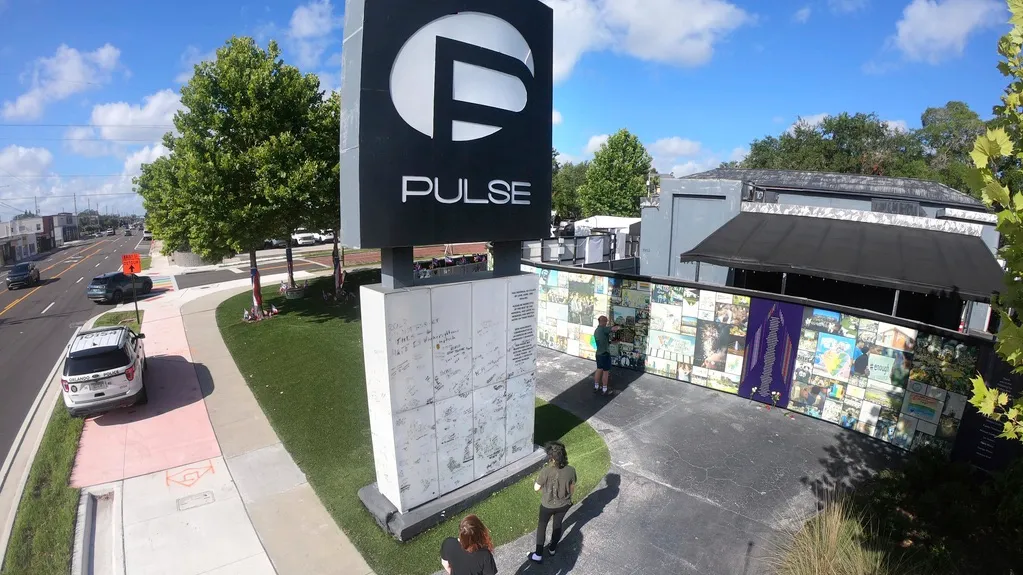September 15, 2011
Florida Attorney Helps LGBT Jamaicans Seek Asylum
Angela Giampolo READ TIME: 4 MIN.
Homophobia still runs rampant around much of the world, but the global LGBT community is experiencing change as human rights advocates like Grace Gomez fight for change.
Grace Gomez, a Coral Gables, Fla., lawyer working with LGBT asylum seekers in the United States, has been making some progressive changes working with displaced LGBT Jamaicans in Florida.
Homophobia is a prominent mindset throughout the country and the United States serves as a haven for some refugees who Gomez has helped to seek asylum. Their stories of hardship are heart-wrenching, as the possibility of being beaten, stabbed, or jailed is an everyday reality for LGBT Jamaicans.
Gomez specializes in immigration law and has become a passionate champion for LGBT asylum seekers globally. When she began her immigration work, she knew nothing about the injustices facing LGBT communities around the world, and she definitely didn't expect to become so involved in her work. The passion for her work was inevitable; after hearing the stories and gaining the trust of her clients, her mission became to change the lives of even just a few immigrants. According to Grace, once she won the trust of the Jamaican LGBT community it became much easier to understand the innate and ingrained fears that they had of their government, families, and country.
Many LGBT Jamaicans in the United States seeking asylum have been completely shunned and outcast. It was hard for Gomez to even get her clients comfortable saying the word "gay" as they more often claimed to "be on the other side;" a term coined out of fear and socially learned prejudice. This violent discrimination, from beatings to murders, is a reality instilled in the community dynamic. Even harboring someone suspected of being gay has violent repercussions.
A client of Gomez, who out of fear for his life would like to remain unnamed, was emotional as he explained his conditions and that of his fellow Jamaicans who were "lost" prior to meeting Gomez. He said that she "helped put things into perspective for me, and told me I could file for asylum or withholding."
As defined by the United Nations persons claiming asylum must establish a "well-founded" fear of persecution, based on one of five grounds: race, religion, nationality, membership in a social group or political opinion. The asylum seeker must prove their case and the courts are obligated by law to protect the refugee.
Withholding is defined under Article 3 and requires applicants to establish that it is more likely than not that they would be tortured if removed to a specific country. It is truly up to an Immigration Judge to decide if the candidate for asylum meets the standard. The notable difference is that asylum is discretionary while Article 3 protection is mandatory.
Relief from deportation under Withholding of Removal is found in the Immigration and Nationality Act under �241(b)(3) and 8 U.S.C. �1231 (b)(3). Under this section, the Attorney General "may not remove an alien to a country if the Attorney General decides that the alien's life or freedom would be threatened in that country because of the alien's race, religion, nationality, membership in a particular social group, or political opinion."
Furthermore, a grant of withholding of removal under INA � 241 (b)(3) provides for a mandatory prohibition against removal of a person to a country when that person has met the burden of proof, in contrast to the discretionary relief available under a grant of asylum.
An application for asylum under 8 U.S.C. �1158 is generally considered an application for withholding of removal under 8 U.S.C. �1231(b)(3) as well. Thus, if the determination is made that a person's life or freedom would be threatened if returned to Jamaica because they are homosexual, they are entitled to mandatory relief from removal to that country.
As Gomez's client describes his feeling about being in court he explains, "[I]t felt like I went in there with a mask on, and when I came out, it felt like I could take my mask off." That liberating moment is one that many gay Jamaicans trapped in their home country will never experience.
Jamaica gives no protection to its gay citizens as the law clearly denounces homosexual acts between men as illegal both publicly and privately. Law enforcement officers actively partake in the discrimination and turn a blind eye towards hate crimes. The judges and court system seem are unaware of the depth of the issue and discriminate just as law enforcement does.
Since protection under the law does not exist locally for LGBT Jamaicans, human rights advocates like Gomez are vital to not only creating a safe place within Jamaica but also changing the perspective of LGBT rights and rule of law in our global community. It is vital to recognize the imbalances of equality that exist around the world in order to demand change and more importantly affect it.
Angela D. Giampolo is an attorney, avid entrepreneur, and advocate for the LGBT community. Her column informs readers about changes affecting the LGBT community and provides expert advice on varying topics. As Founder and Principal of Giampolo Law Group, her goal is to provide a safe place for the LGBT community to service their legal needs and have their business and entrepreneurial questions answered. To learn more about Giampolo Law Group visit www.giampololaw.com and to read more articles, you can visit the firm's two blogs at www.phillygaylawyer.com and www.lifeinhouse.com. To contact Angela directly with your business and legal related questions email her at: [email protected].


